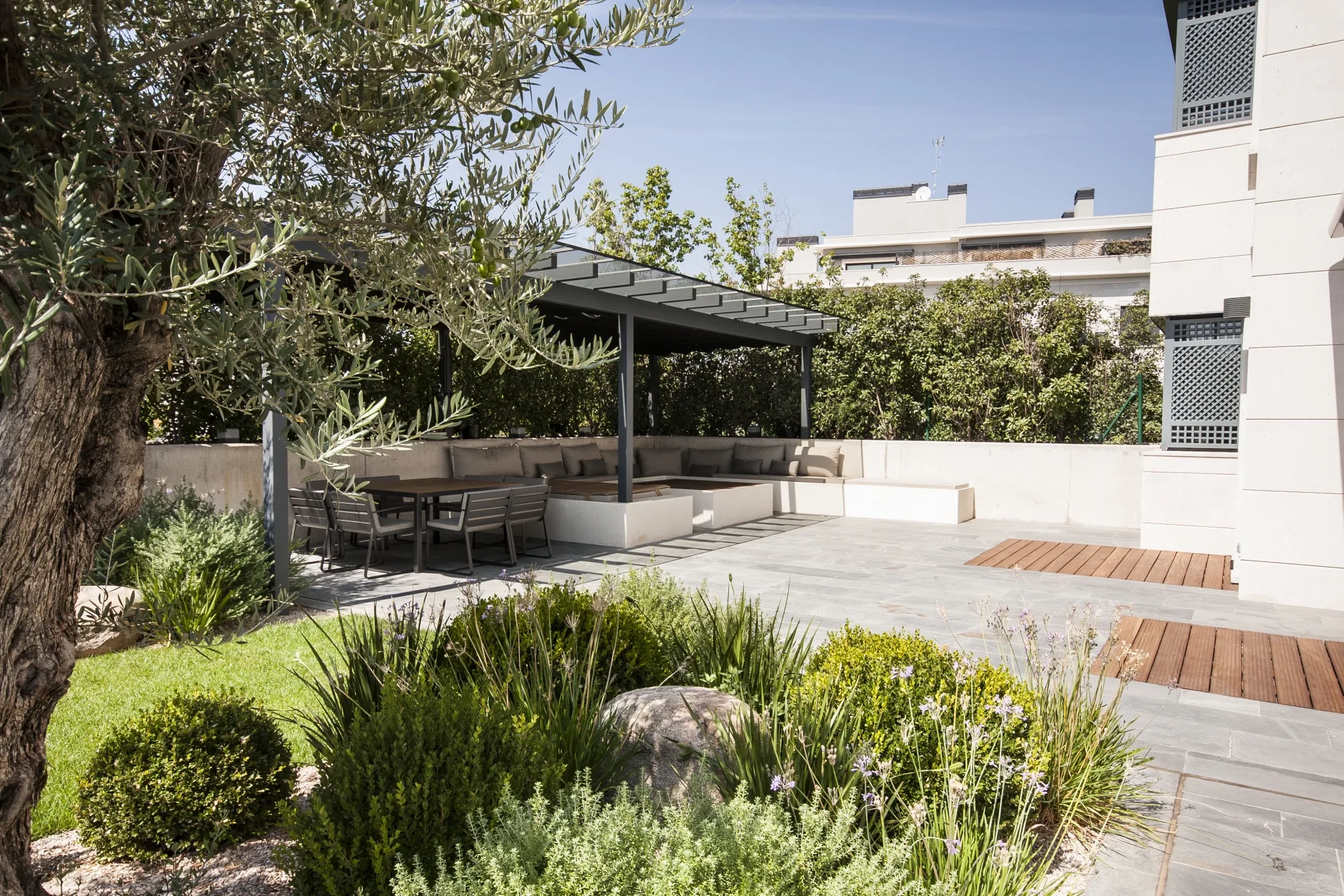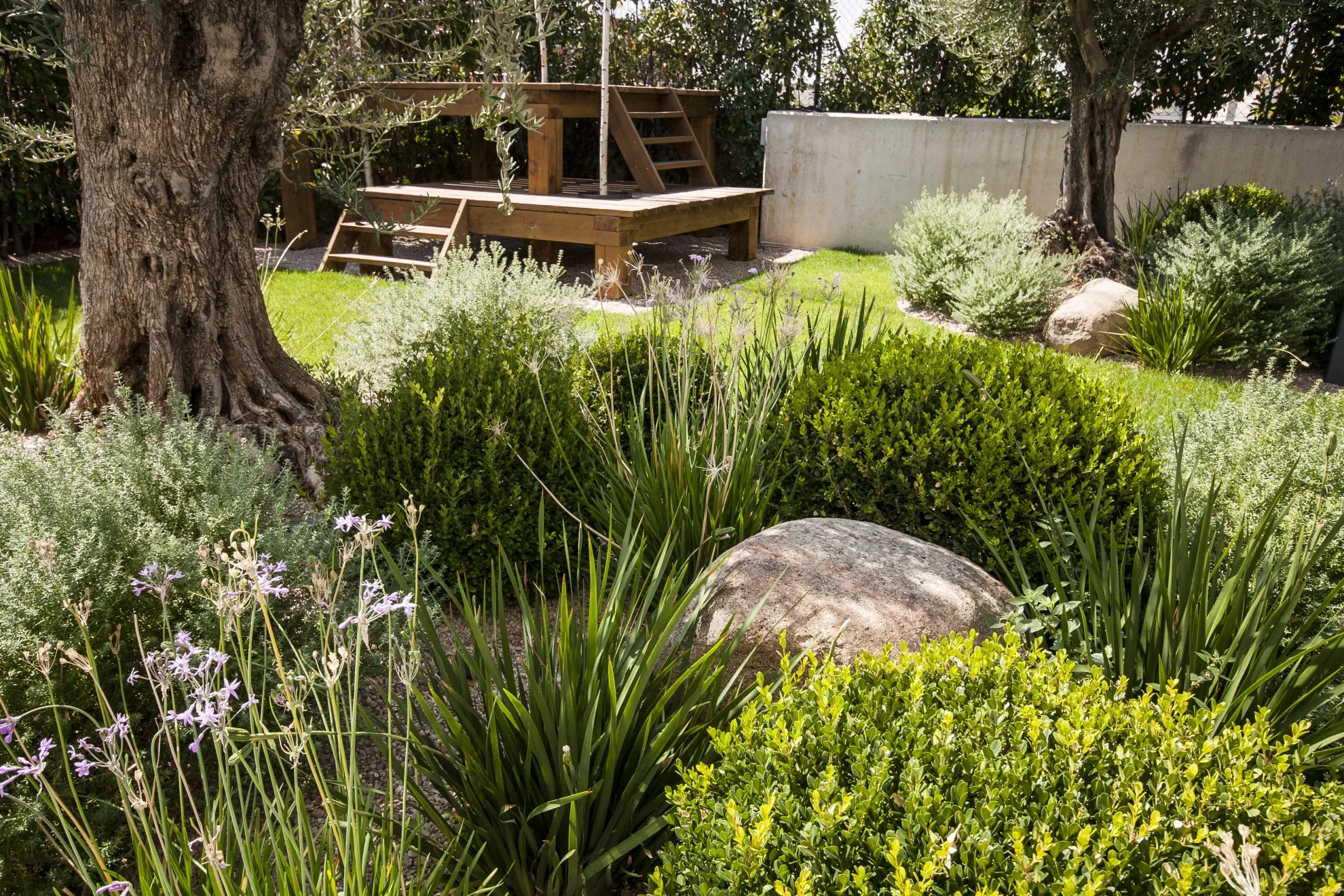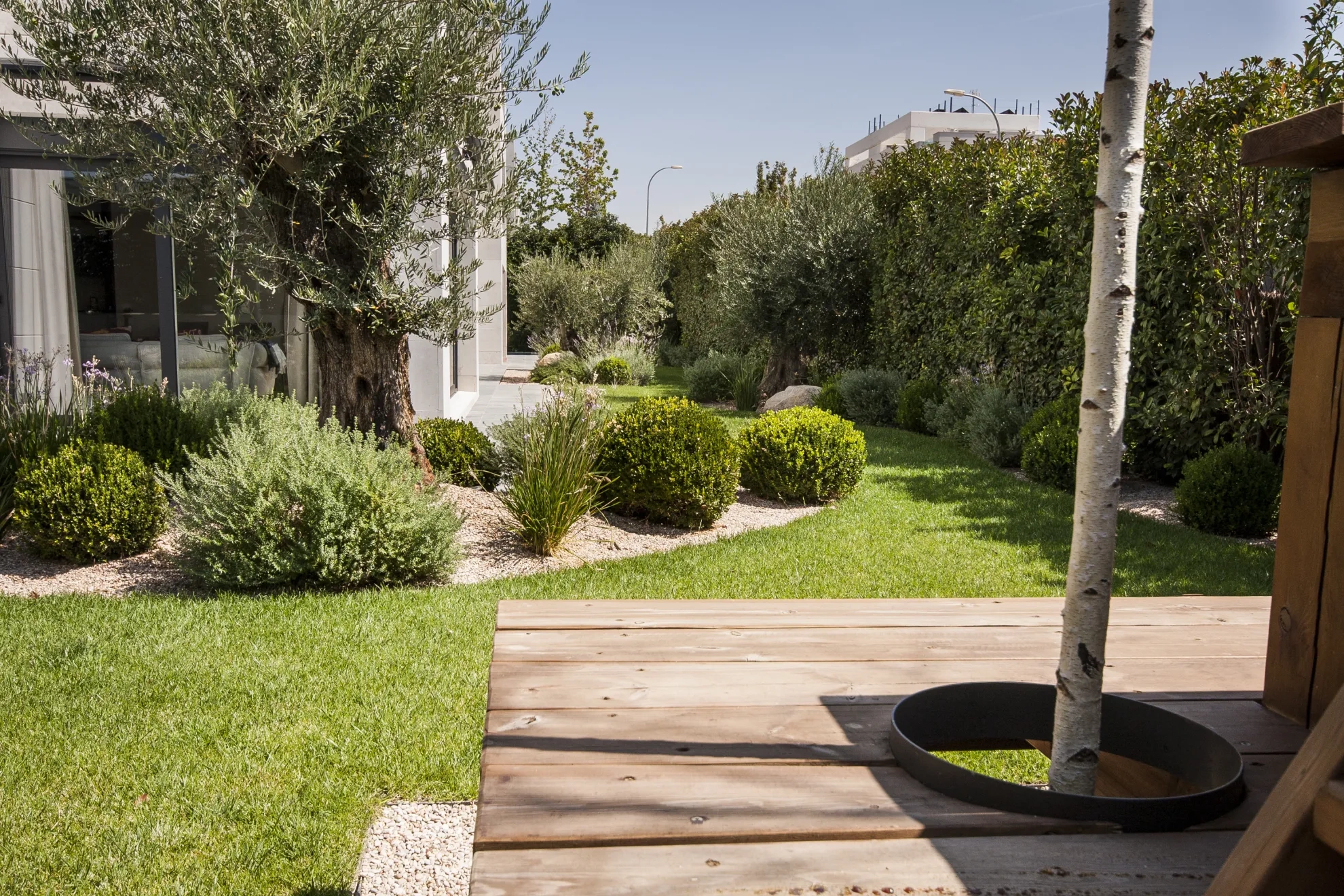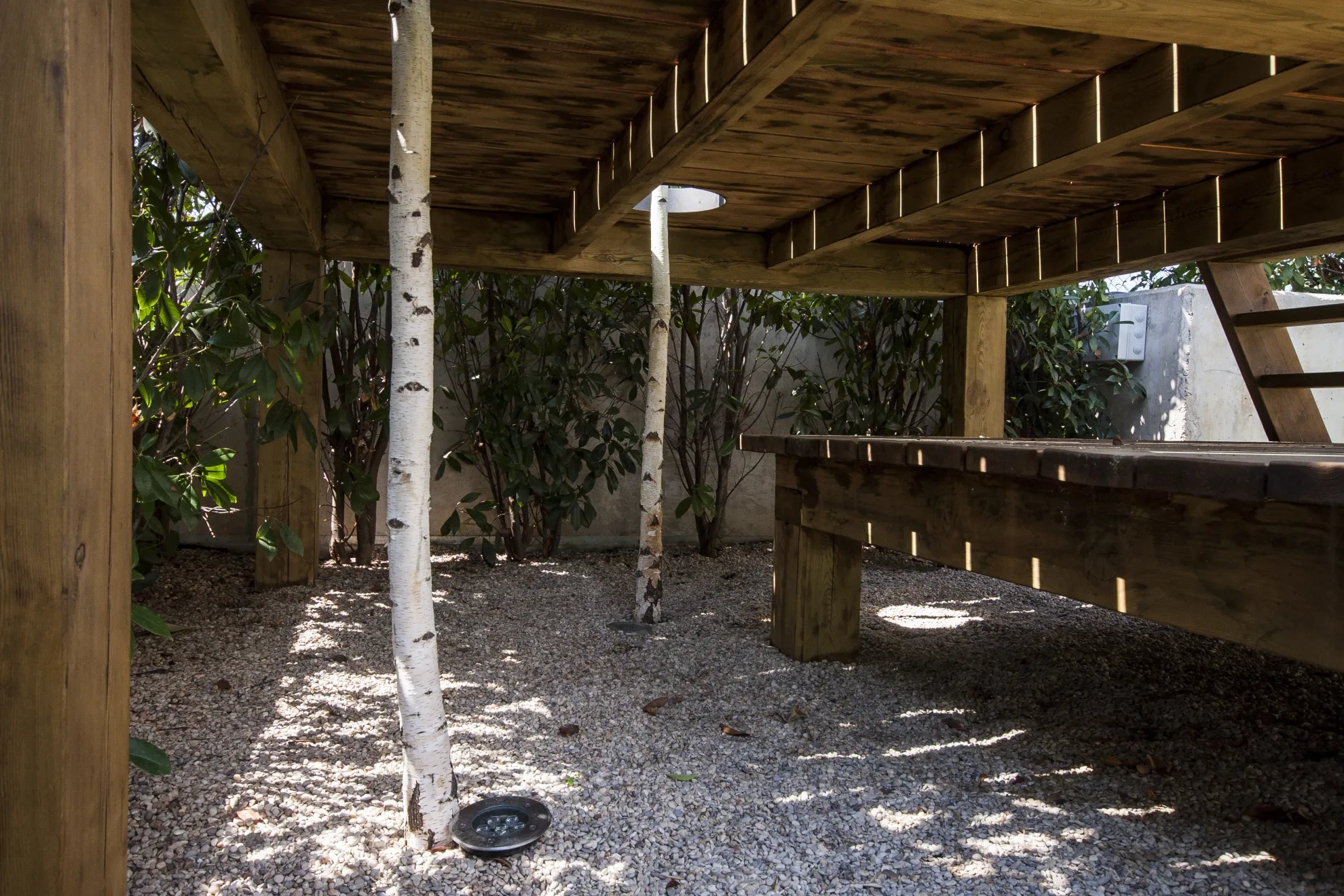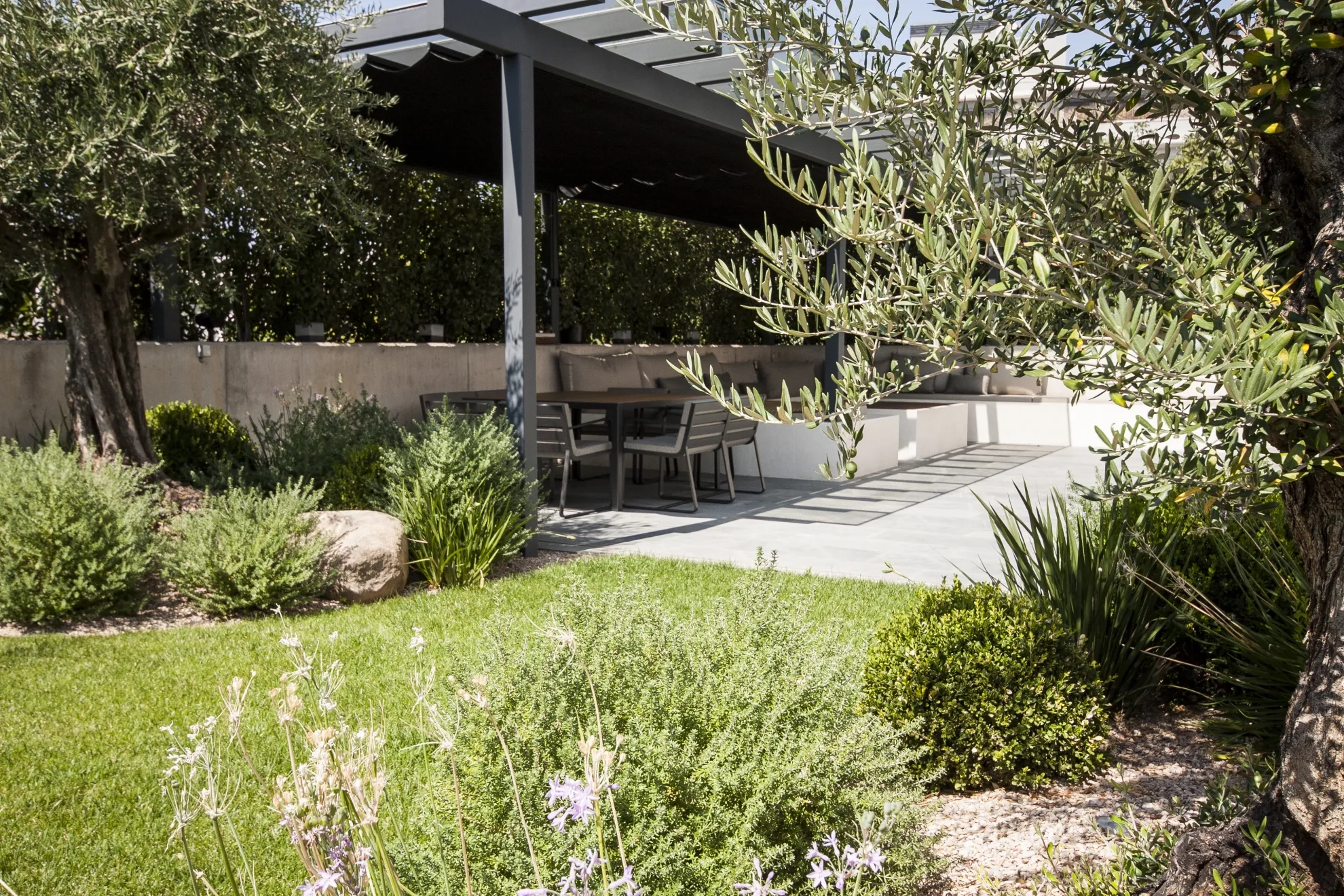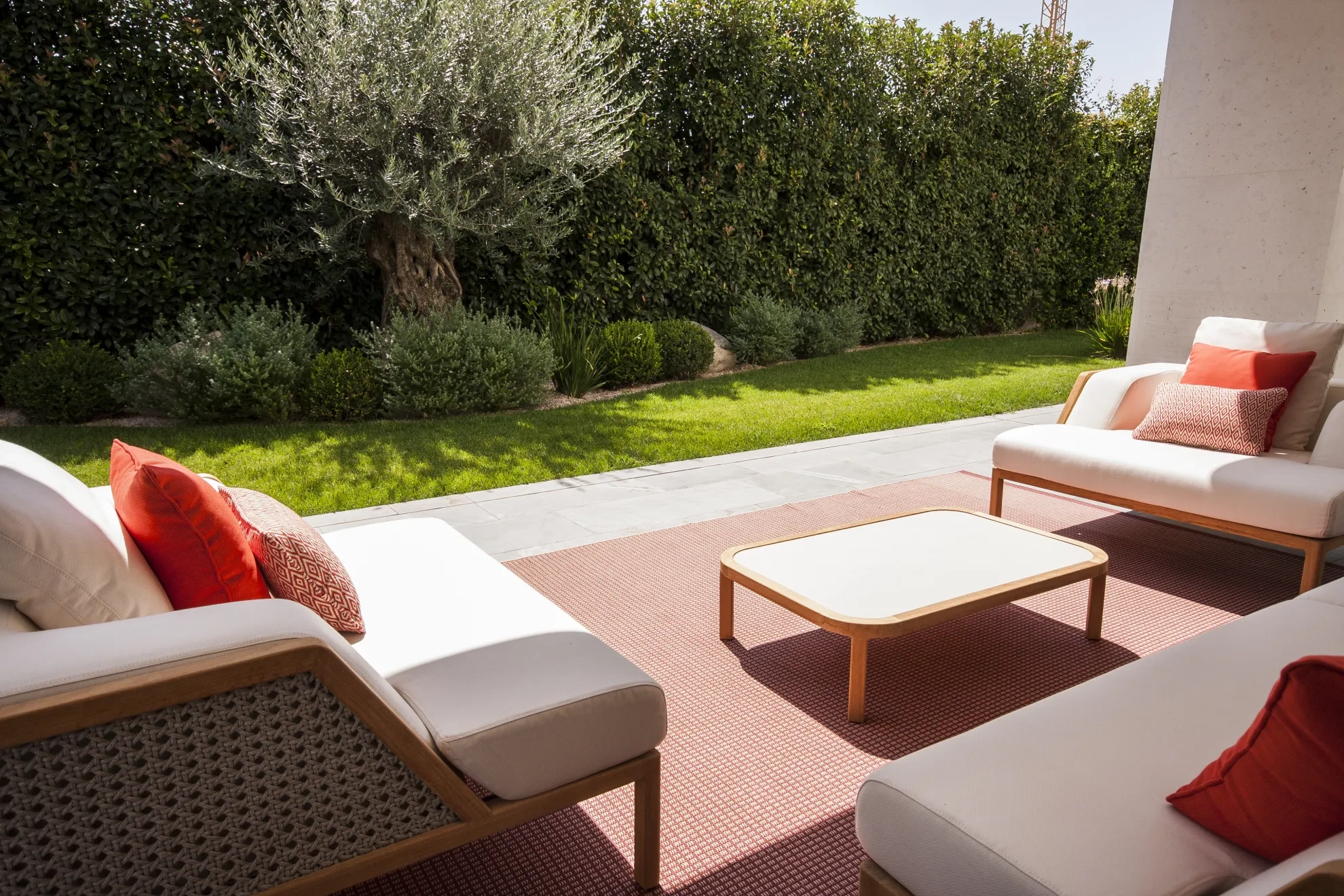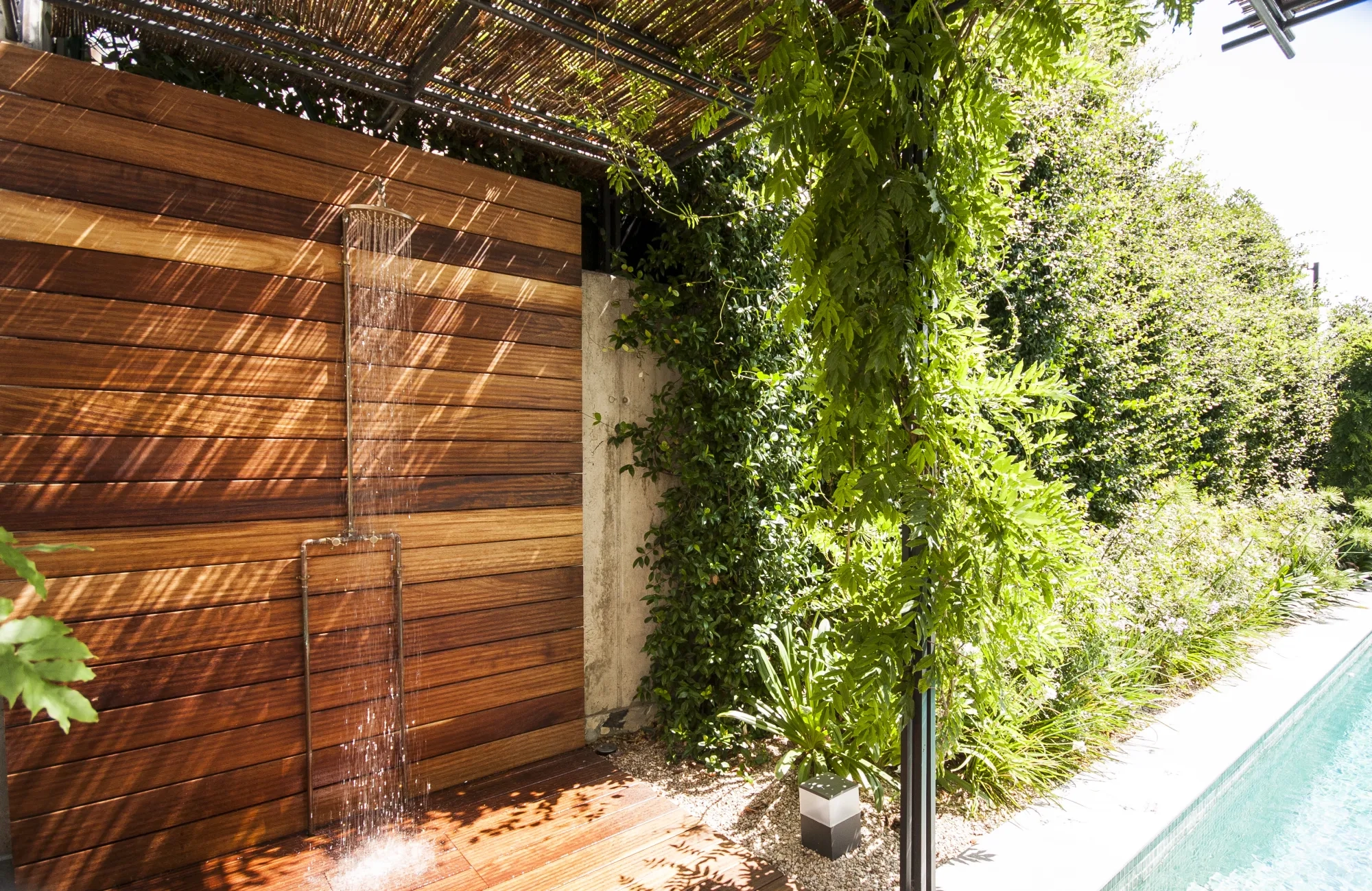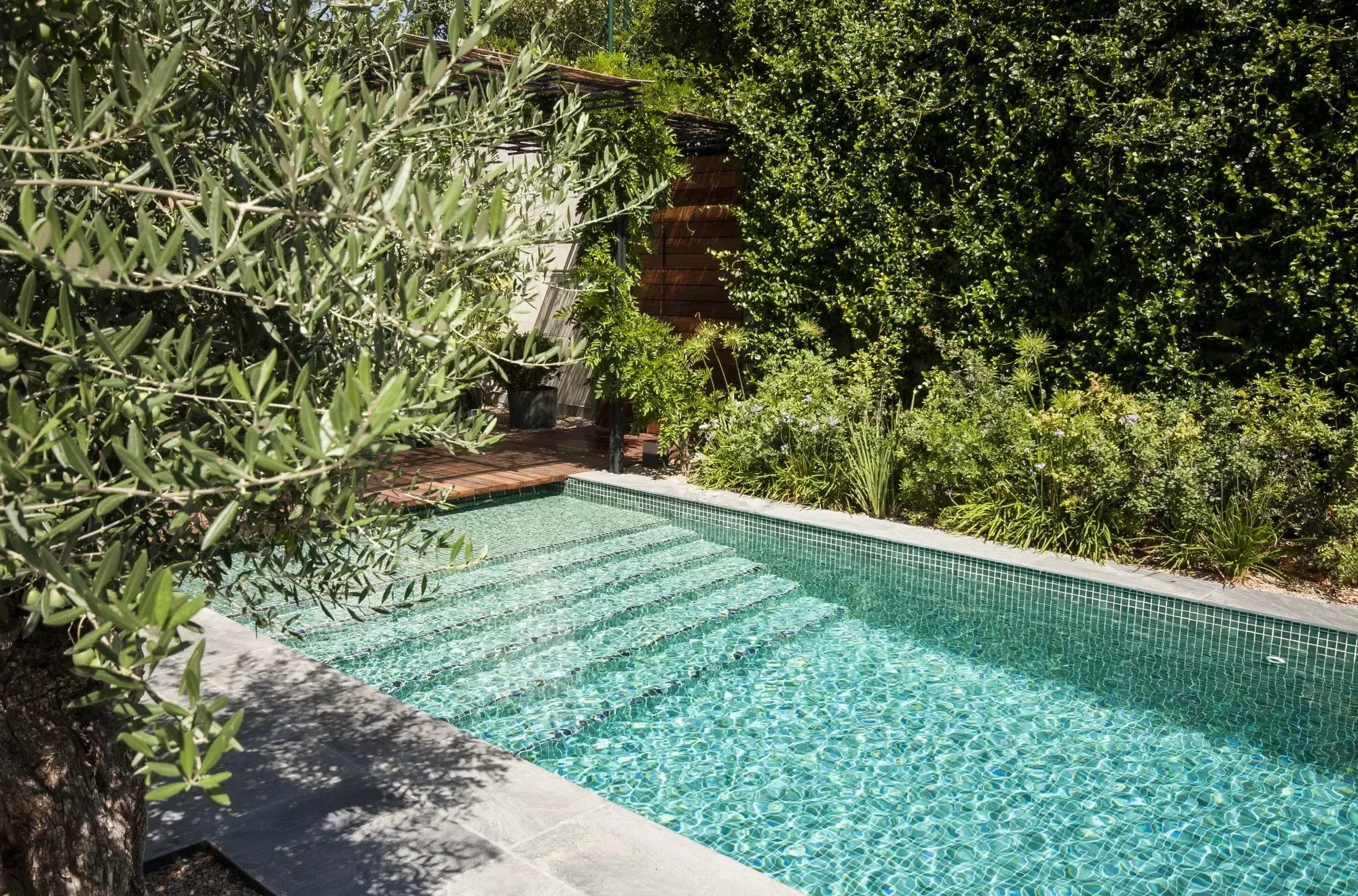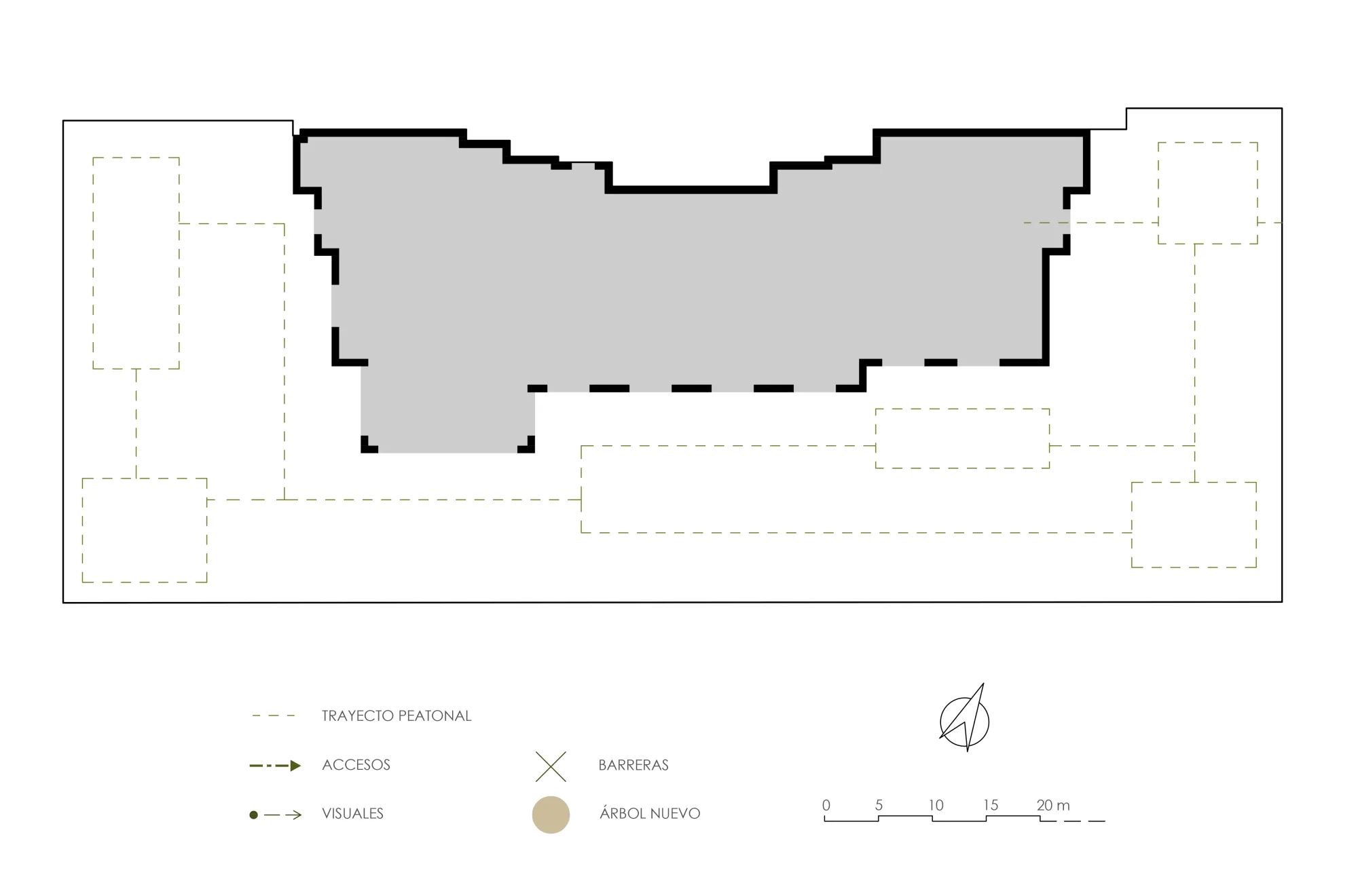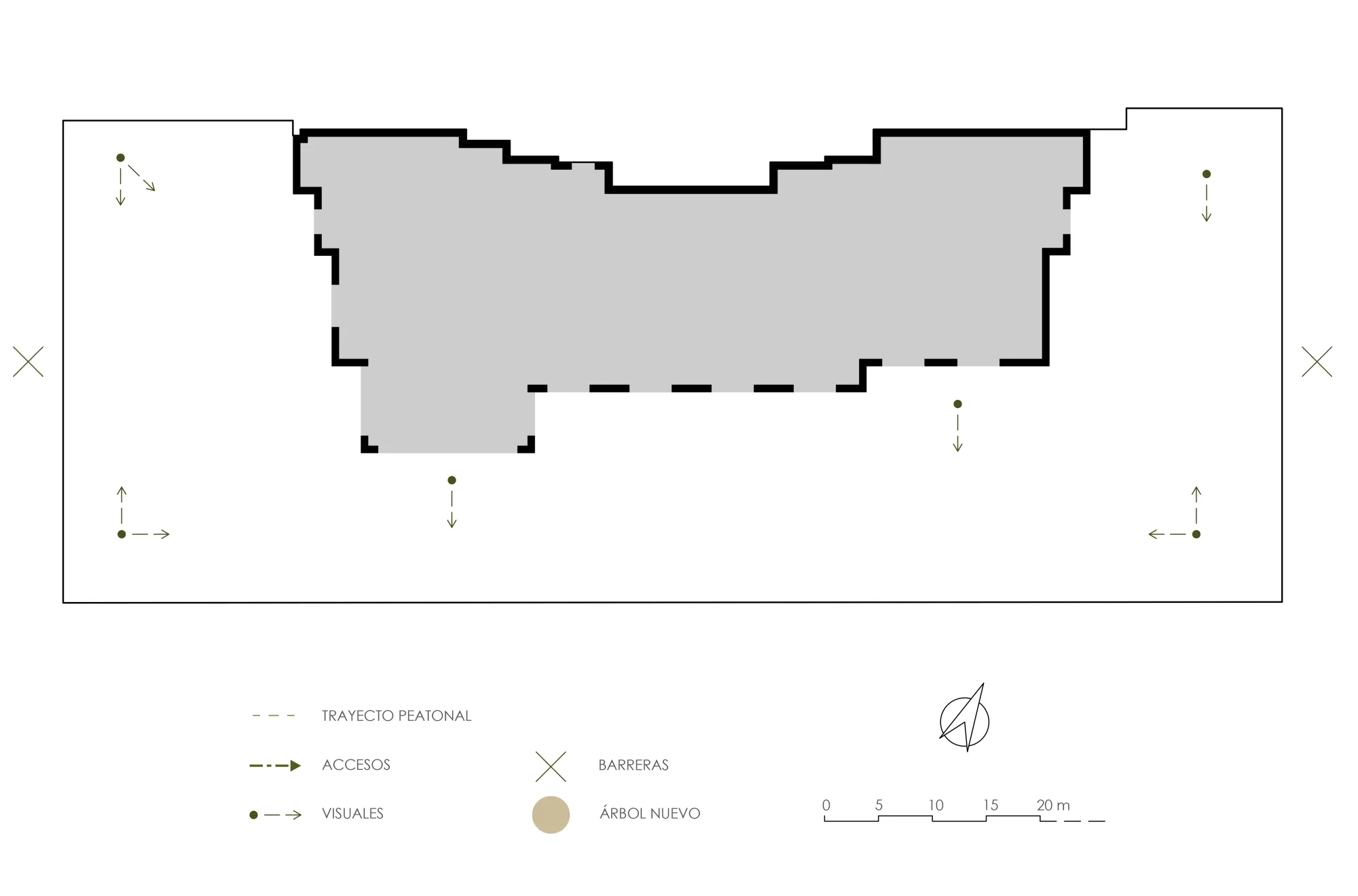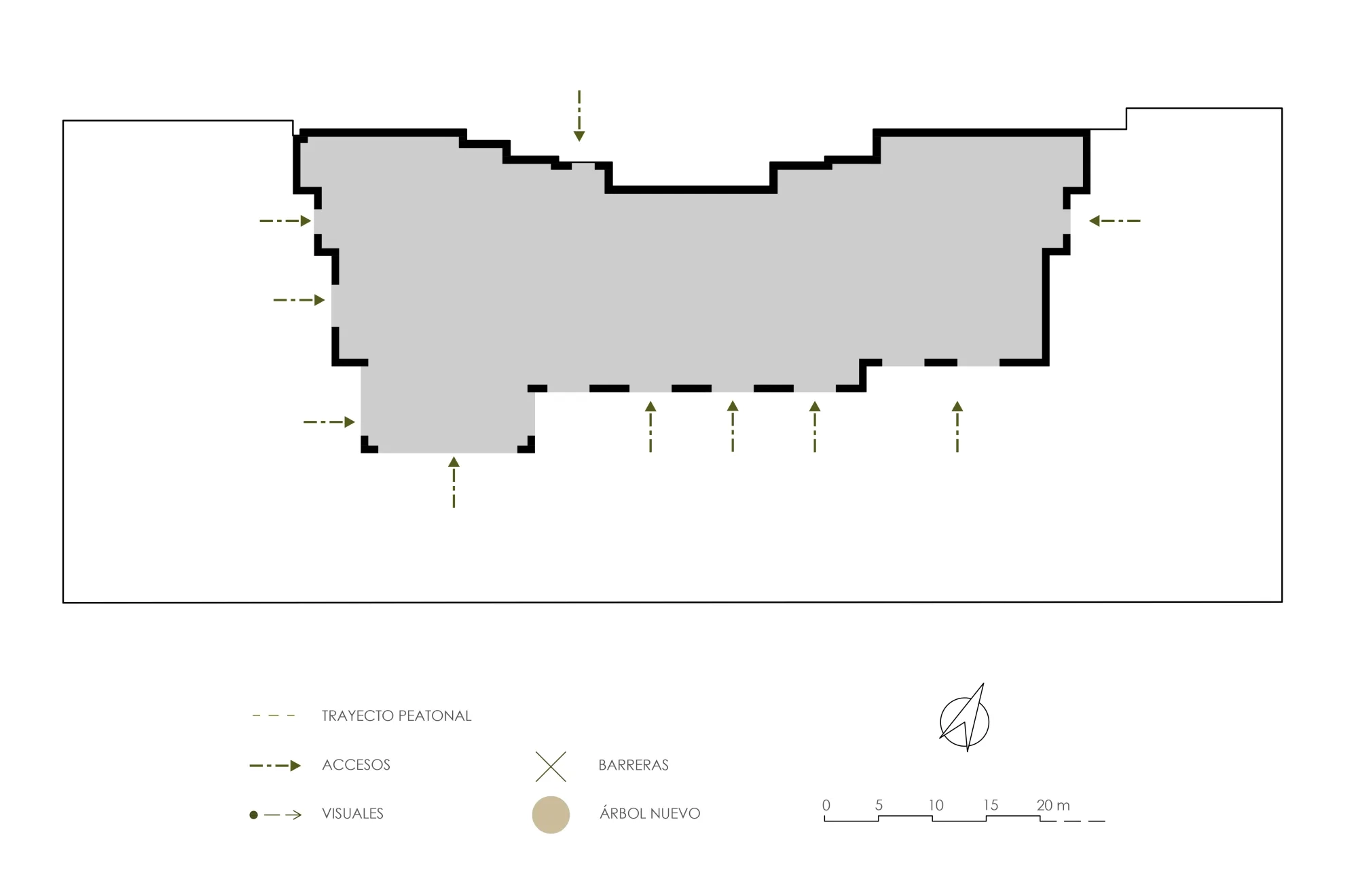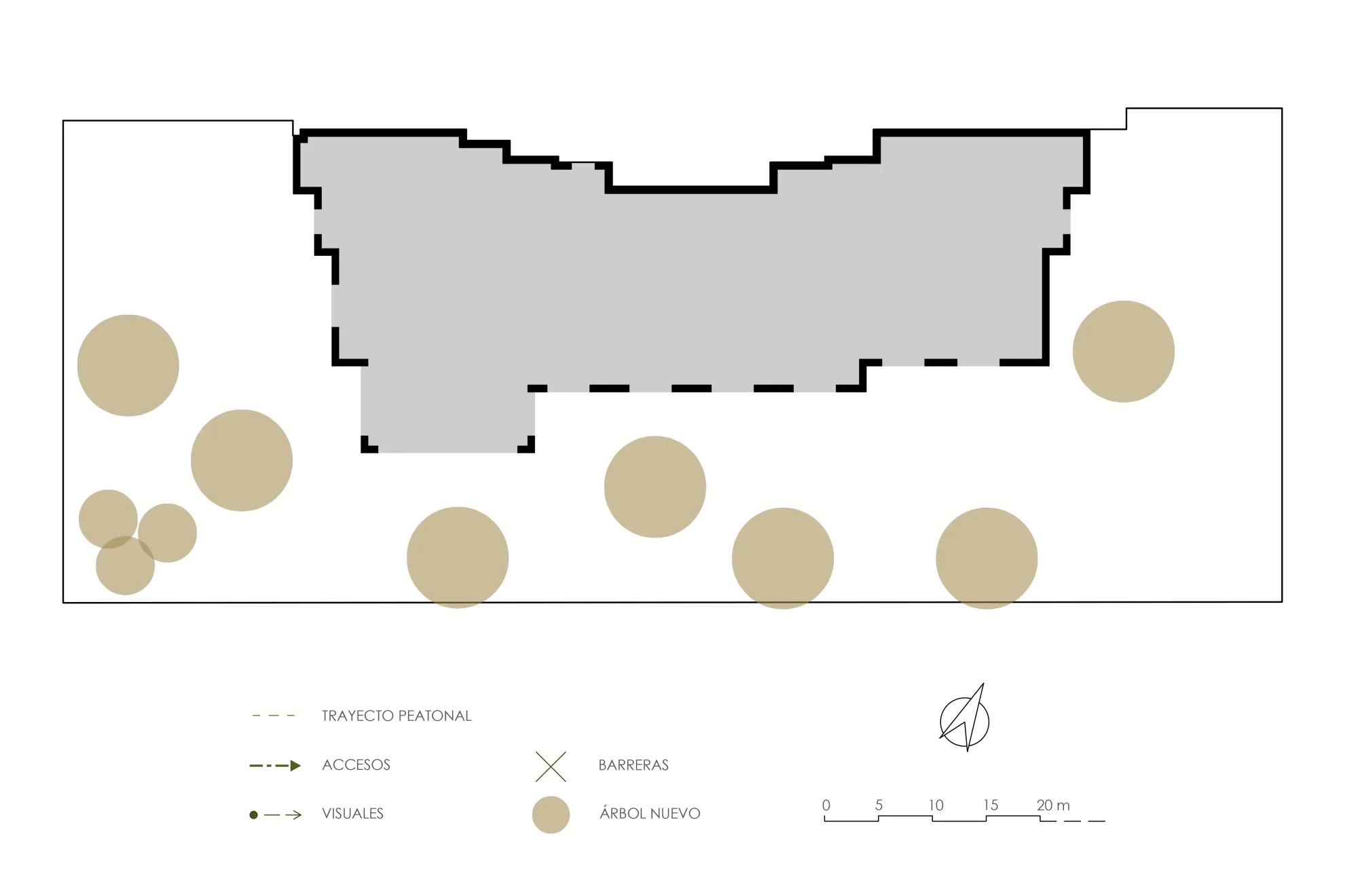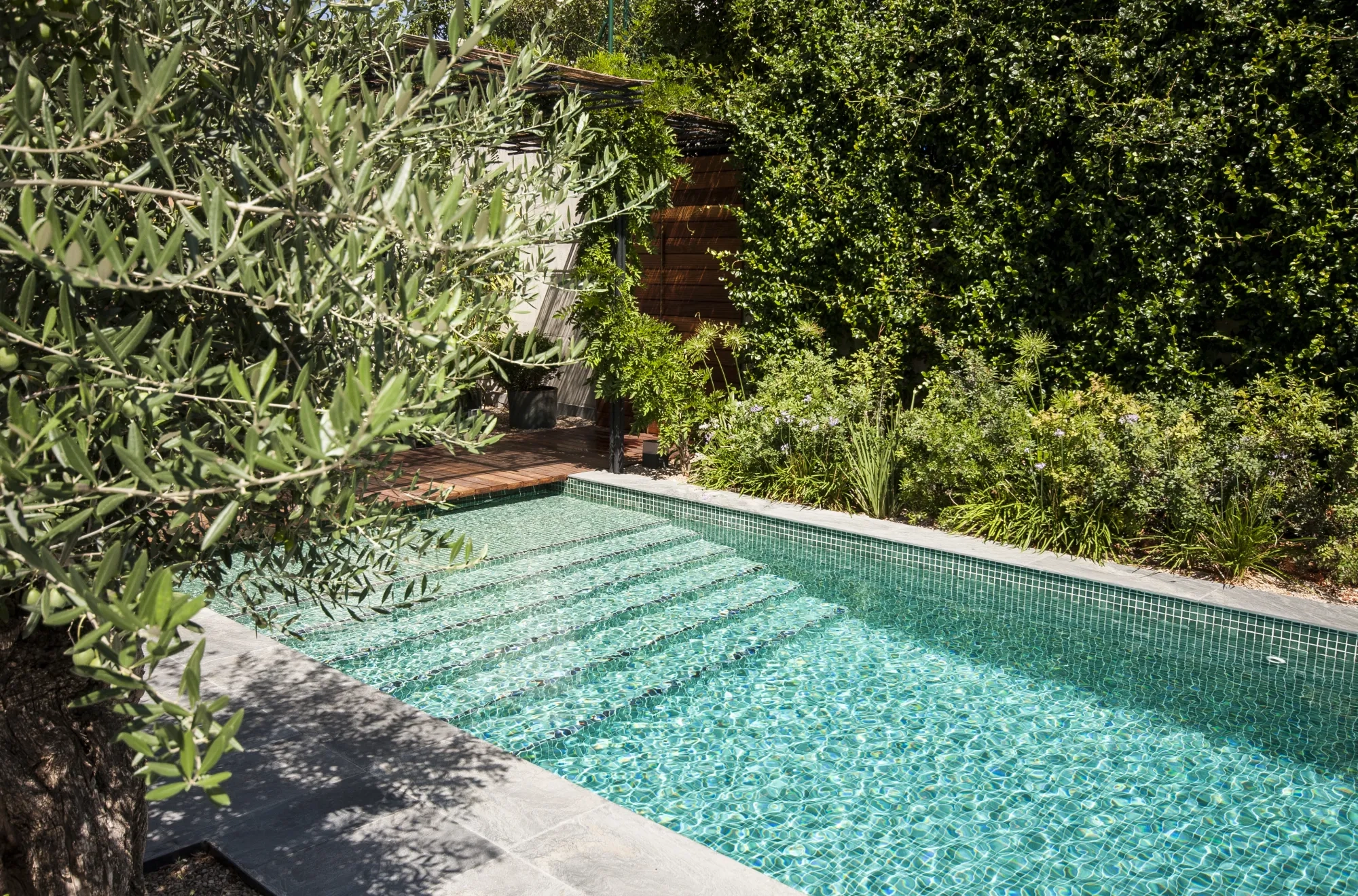Marcos' Garden
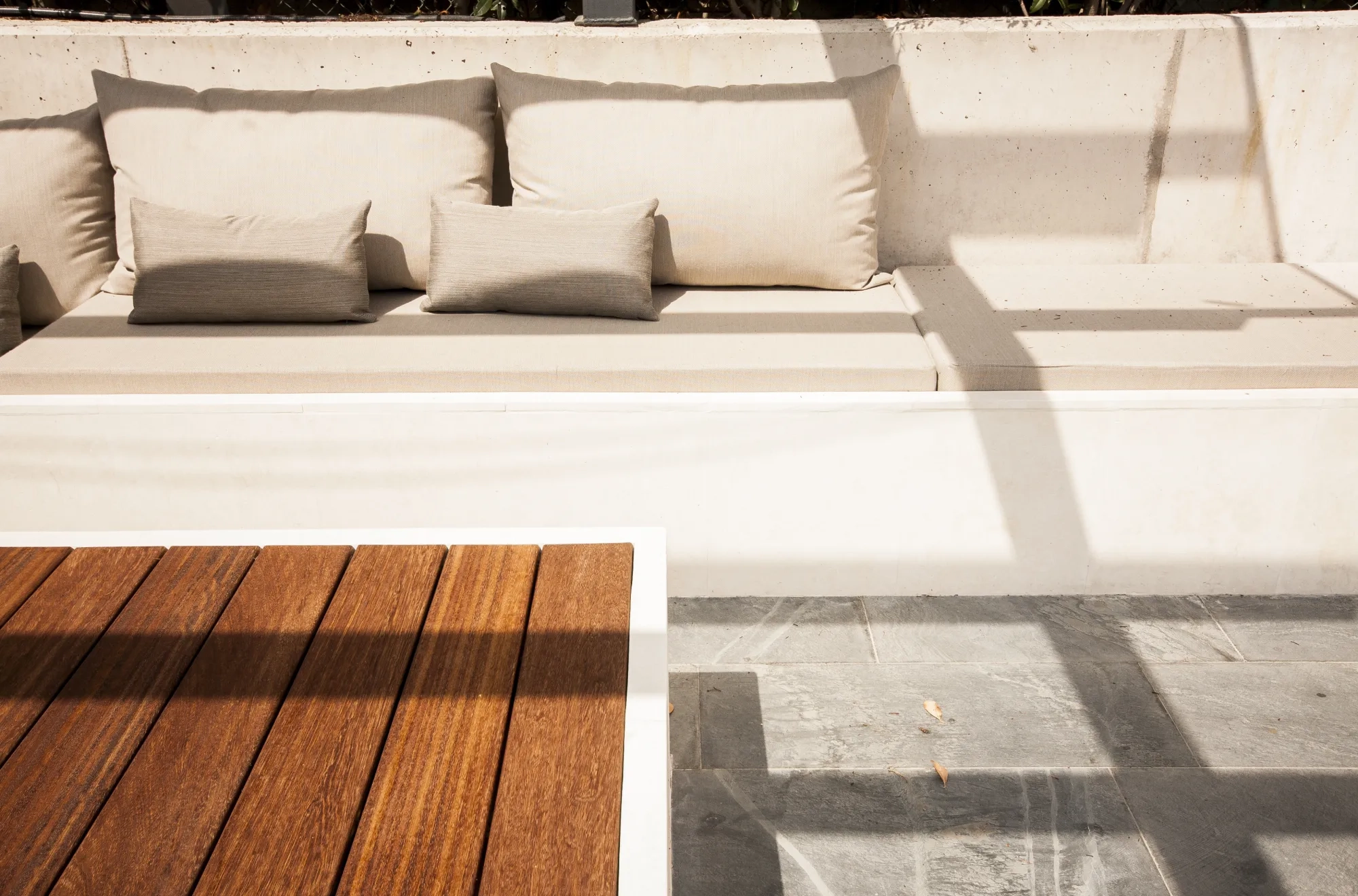
Date
2017-2018
Location
Madrid (Spain)
Type
Residential
Trees
9
Area
916 m2
Status
Built
|
Gardens are for people. This is the title of Thomas Church's book from 1955, highlighting the importance of designing gardens to be used by people, not just as a decorative or aesthetic element. Church emphasizes that gardens should be spaces whose design takes into account the needs and desires of the people who will inhabit them. When we began designing the garden for Marcos, we established clear premises with him that prioritized functionality above any other consideration, so maintenance had to be limited to certain days each month. |
Since the garden was intended for private and personalized use, specific areas were designed, such as an outdoor shower that connects directly to the dressing room, as well as a heated pool and jacuzzi. In addition, the garden design focused on its use throughout the year, considering that all the rooms in the house had direct access to the outside. This focus on using the garden 365 days a year resulted in a design that maximized versatility and comfort in the use of the outdoor space. You can check out the text written by Daniel Valera during the pandemic inspired by Church's book: Gardens are for people. |
We cannot think of a universal garden, but rather a garden that adapts to the needs and particularities of each type of family.
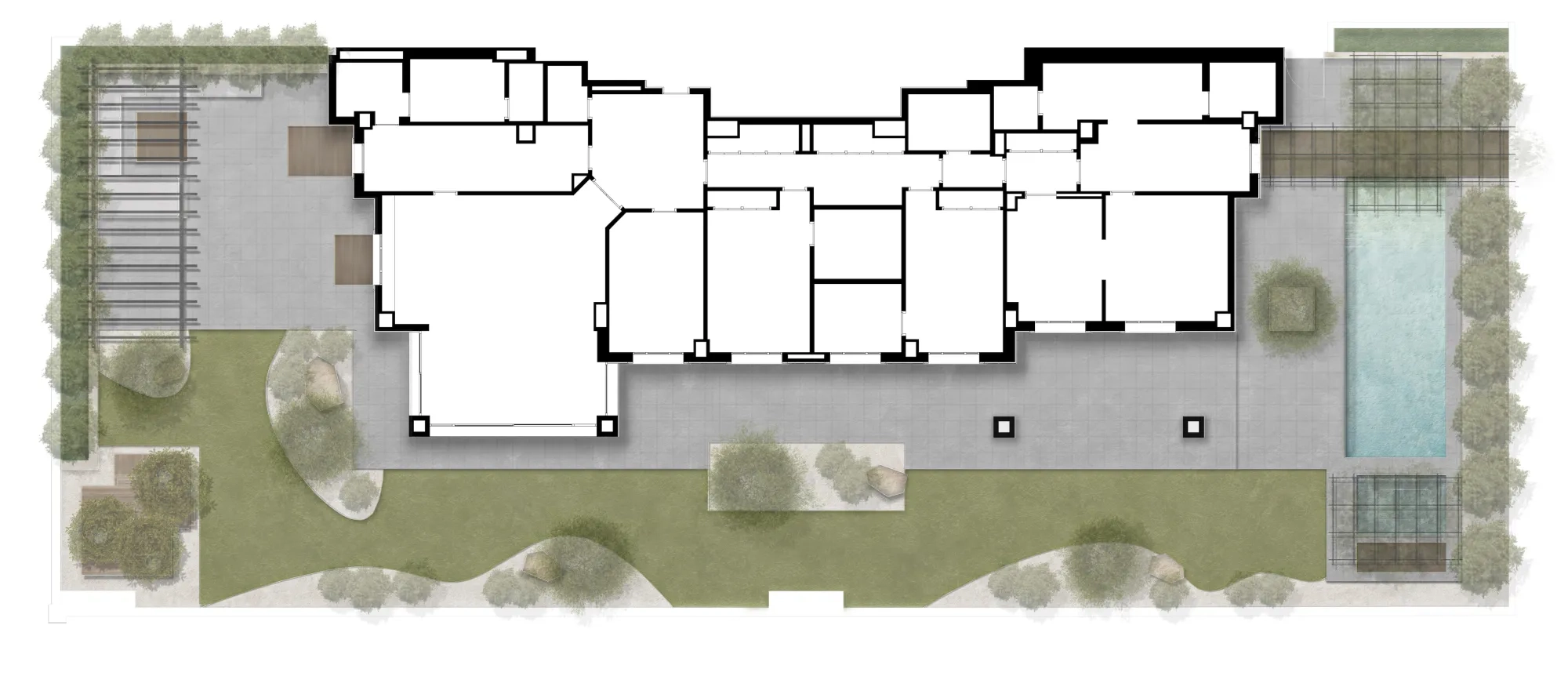
A GARDEN FOR EVERY TYPE OF FAMILY
The landscape architect not only imagines and creates physical spaces, but also influences the way people experience those spaces and how they relate to them. Gaston Bachelard, in his work The Poetics of Space, proposes that spaces are places where emotions are experienced and memories are constructed. According to Bachelard, each space has its own identity and memory, and it is through our experience and relationship with them that they become lived and meaningful spaces for us.
If we conceive the space occupied by the garden as a social construction that is interpreted and experienced individually by each person, we can affirm that its design and planning must start from a conception that takes into account the complexity and diversity of the human experience itself. We cannot think of a universal garden, but rather a garden that adapts to the needs and particularities of each type of family.
A GARDEN THAT GENERATES ENERGY
Marcos' garden is a good example of how engineering can serve the landscape architect. In this project, every detail has been taken into account to reduce the impact on the environment as much as possible and make it a self-sufficient space.
The installation of photovoltaic panels on the pergola has been a key decision, as they generate the energy necessary to heat the jacuzzi water, allowing it to be used at any time of day or night. In addition, the installed cover has the capacity to retain the heat generated during the day, allowing it to be maintained at night without the need for expensive energy storage systems, reducing waste generation in line with the project's sustainability philosophy.
